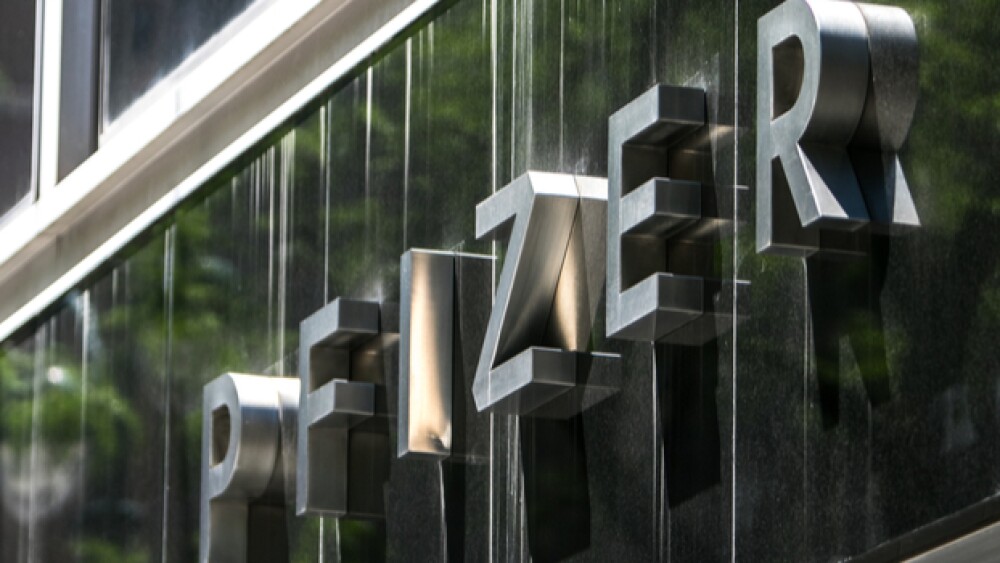Pfizer and BioNTech updated their development program, with plans to launch clinical trials in the U.S. and Europe across multiple sites by the end of April.
Roman Tiraspolsky / Shutterstock
Although a fair amount of attention has been paid to Moderna’s RNA-based vaccine against COVID-19, Pfizer and German company BioNTech are using similar technology to advance a vaccine. Pfizer and BioNTech updated their development program, with plans to launch clinical trials in the U.S. and Europe across multiple sites by the end of April. Pfizer has also chosen a lead antiviral to test against the disease.
During the development stage, BioNTech and its partner will provide the vaccine from its GMP-certified mRNA manufacturing plant in Europe. The two companies will partner to scale-up manufacturing capacity to provide a possible global supply of the vaccine. They will then work together to commercialize it except in China, which is covered by BioNTech’s collaboration deal with Fosun Pharma.
“Combating the COVID-19 pandemic will require unprecedented collaboration across the innovation ecosystem, with companies coming together to unite capabilities like never before,” said Mikael Dolsten, chief scientific officer and president, Worldwide Research, Development & Medical for Pfizer. “I am proud of Pfizer’s collaboration with BioNTech and have every confidence in our ability to harness the power of science—together—to bring forth a potential vaccine that the world needs as quickly as possible.”
Under the terms of the deal, Pfizer is paying BioNTech $185 million up front, including a cash payment of $72 million and an equity investment of $113 million. BioNTech will be eligible for up to $563 million in milestone payments for a total value of $748 million. The two companies will split development costs evenly, with Pfizer funding 100% of development costs and BioNTech repaying Pfizer 50% of the costs during the commercialization process.
Pfizer has also chosen an antiviral drug candidate against COVID-19. In an interview with the Wall Street Journal, Dolsten indicated the drug candidate blocks SARS-CoV-2, the virus that causes COVID-19, from replicating. In patients with mild-to-moderate symptoms, the preclinical data suggests it could slow or stop the spread of the virus, although there is a lot of clinical work in human beings required to actually determine if that’s actually the case. The lead compound is a potent inhibitor of the SARS-CoV-2 3C-like (3CL) protease. The lead compound and analogues have shown antiviral activity against SARS-CoV-2. Clinical trials probably won’t start until the third quarter, which is three or more months earlier than previous estimates.
In addition to this compound, the company is planning to begin testing its rheumatoid artiritis drug Xeljanz in COVID-19 patients in Italy, as well as research on some of its antibiotics.
“I feel confident that we will win, battle by battle, to turn around this viral war against our society,” Dolsten said.
One obstacle Pfizer is facing is that it dismantled its antiviral research department in 2009. The company’s coronavirus team is working remotely, and has reviewed molecules that previously showed activity against other coronaviruses, such as SARS.
“We are committed to making the impossible possible,” said Albert Bourla, chairman and chief executive officer of Pfizer. “In the spirit of the Five Point Plan that Pfizer issued, we are facing this public health challenge head on by collaborating with industry partners and academic institutions to develop potential novel approaches to prevent and treat COVID-19. Our researchers and scientists also have been exploring potential new uses of existing medicines in Pfizer’s portfolio to help infected patients globally. We are leaving no stone unturned as we explore every option to help provide society with a treatment or cure.”





